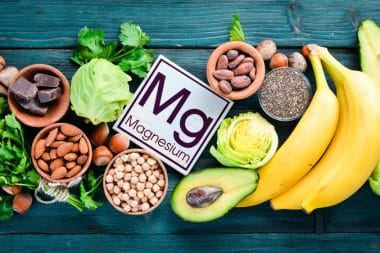We want healthy functioning immune systems as we deal with this new COVID-19 virus. Supplementing with nutrients that support our immune system sounds like a good idea. Findings suggest that zinc can reduce inflammation and support anti-viral immunity in the fight against COVID-19. A zinc deficiency is a risk factor in the development of pneumonia. Pneumonia can be a complication of COVID-19.
Coronaviruses in general cause many of our common colds. Many of us use zinc lozenges when we have a cold to ease symptoms and promote healing.
There is not enough data yet to know if zinc lozenges or supplements are beneficial in helping protect and shorten COVID 19. But it is being studied.   We do know that zinc plays a vital role in keeping our immune system performing optimally.
What is zinc?
Zinc is a mineral and essential trace element. Only small amount of zinc are necessary for good health. Zinc helps cells grow and multiply. Childhood, adolescence and pregnancy are times of rapid growth where it is important to get adequate zinc. Zinc is required for 100 different enzymes to perform their functions. However, the body cannot store excess zinc. You need what you need and you need to get it daily.
Dietary sources of zinc include red meat, poultry, fish, beans, nuts, crab, lobster, whole grains, dairy products. Animal foods have a greater supply of zinc than plant based foods. Vegetarians need to be careful that they are getting adequate zinc.
Health Benefits of Zinc:
Zinc supplementation seems to reduce inflammation and shorten the duration of a cold. Zinc lozenges dissolve slowly and coat the mouth and throat were cold viruses like to hang out.
Adequate zinc decreases risk for respiratory infections and pneumonia.
Boosts immunity and helps prevent viral infections.
Helps wounds heal.
Affects cellular metabolism, helps DNA syntheses and helps protein syntheses.
Teeth and Breath: Zinc can help rid bad breath. If you are combating bad breath, try gum, candy or lozenges that contain zinc. There is also some evidence that shows zinc toothpaste can help prevent plaque and gingivitis.
Zinc supports growth and development through adolescence.
Zinc is required for sense of taste and smell.
There is some evidence that zinc help against the herpes virus.
Zinc supplements can help weight gain for those struggling with anorexia.
Improves acute diarrhea.
Slows age-related macular degeneration.
ADHD – In the Middle East where zinc deficiency is more common zinc supplements are often used in combination with ADHD drugs to help children with ADHD. Taking additional zinc with other prescribed medication has been show to improve hyperactivity and socialization problems.
Lower zinc levels increase your risk for depression.
Zinc can reduce blood sugar and increase insulin levels which can help those who have Diabetes.
Zinc gel can help heal diabetic foot ulcers.
Zinc oxide cream or paste can help prevent sunburn. Even ancient Greek medical books refer to zinc oxide to treat skin conditions.
Zinc has been by those who have had a heart attack to help their heart beat more effectively.
Zinc as a paste and as an oral supplement can ease diaper rash.
How much zinc is enough?
Supplements can be found in pills and lozenges if necessary. However, be aware that zinc can interfere with your body’s absorption of iron and copper. It is a good idea to check with you health care provider before adding supplements to your routine.
| Table 1: Recommended Dietary Allowances (RDAs) for Zinc [2] | ||||
| Age | Male | Female | Pregnancy | Lactation |
| 0–6 months | 2 mg* | 2 mg* | ||
| 7–12 months | 3 mg | 3 mg | ||
| 1–3 years | 3 mg | 3 mg | ||
| 4–8 years | 5 mg | 5 mg | ||
| 9–13 years | 8 mg | 8 mg | ||
| 14–18 years | 11 mg | 9 mg | 12 mg | 13 mg |
| 19+ years | 11 mg | 8 mg | 11 mg | 12 mg |
* Adequate Intake (AI)
Zinc Deficiency:
Signs of a zinc deficiency are:Â short stature, food taste abnormalities, testes and ovaries that do not function properly, hair loss, mental lethargy, poor immune function and delayed healing of wounds.
Being insufficient in zinc increases your risk of infectious disease.
Age increases your risk for low levels of zinc.
Malnutrition is a leading risk for zinc deficiency. Increased risk factors also include those with ulcerative colitis, crohns disease, vegetarians, pregnant women, women who are nursing, those with chronic liver disease, diabetes, alcoholics and sickle cell disease.
The good news is oral zinc or intravenously zinc supplementation can restore zinc levels in people who are deficient.
Side effects and toxicity?
Zinc nasal sprays should not be used. The use of zinc sprays can lead to the loss of your sense of smell.
Oral zinc supplements can cause indigestion, diarrhea, abdominal cramps, headaches, upset stomach and vomiting.
Taking too much zinc can lead to a copper deficiency. Signs of low copper levels include neurological issues, numbness and weakness in arms and legs.
Zinc can interfere with medications even antibiotics or diuretics. Please check with your doctor before taking a zinc supplement.
Takeaway
Zinc is inexpensive and has few negative side effects. It could be a good idea to make sure you are getting enough zinc in your diet to maintain adequate levels. Groups that are at high risk for zinc deficiency are also at high risk for COVID-19.
Zinc is your immune booster to protect you from viruses. #HealthStatus
Being insufficient in zinc increases your risk of infectious disease.
Sources:
https://ods.od.nih.gov/factsheets/Zinc-HealthProfessional/
https://www.webmd.com/vitamins/ai/ingredientmono-982/zinc
https://www.mayoclinic.org/drugs-supplements-zinc/art-20366112
https://www.hsph.harvard.edu/nutritionsource/zinc/
https://www.medicalnewstoday.com/articles/zinc-may-have-protective-effects-against-covid-19
https://www.spandidos-publications.com/10.3892/ijmm.2020.4575
https://www.ncbi.nlm.nih.gov/pmc/articles/PMC7247509/
https://www.uchealth.org/today/zinc-could-help-diminish-extent-of-covid-19/
https://medicalxpress.com/news/2020-07-scientists-perspectives-zinc-intake-covid-.html
https://journals.plos.org/plospathogens/article?id=10.1371/journal.ppat.1001176
https://www.frontiersin.org/articles/10.3389/fimmu.2020.01712/full
Did You Know?
- The current prices for the Entire Purium Line as of April 17th, 2024 are Here
- This Ultimate Transformation has people losing between 5 and 20 pounds.
- You can Protect your gut bacteria from harmful glyphosate with this.
- Purium Products are organic and GMO free.
Purium Top Sellers
Let HealthStatus Send You a $50.00 Gift Card








Reply